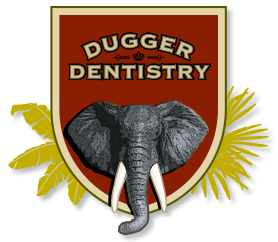Understanding the Common Causes of Tooth Pain

When you need dental implants in West Linn, there’s a pretty clear reason behind why Dr. Dugger would recommend oral surgery. Whether from tooth decay, gum disease or oral trauma, a clear cause and effect relationship exists that leads to getting dental implants in West Linn. However, when it comes to your oral health in general, not all causes of dental discomfort have such a clear explanation.
Take for example tooth pain. While cavities and gum disease rank as the most common causes of tooth pain, they’re not alone. In fact, there are many habits and activities you may perform daily that could cause tooth discomfort. Let’s take a look at a few habits that could be harming your oral health.
Clenching Your Teeth
If you have an unconscious habit of clenching your jaw whenever feeling angry, stressed, irritated or tense you risk doing permanent damage to your teeth. Clenching places excessive force and stress on your teeth’s enamel. While teeth can handle this type of pressure temporarily when eating, frequent clenching wears down tooth enamel, making it more susceptible to the effect of decay. So while your teeth may not crack under the pressure, they will slowly wear down over time.
Teeth clenching becomes even a bigger problem when combined with our next unconscious habit…
Grinding Your Teeth
Even if you don’t feel stressed, you still might grind your teeth while asleep. Grinding at night is incredibly common for people who have misaligned bites, missing teeth or who deal with sleep apnea.
Just like clenching, teeth grinding places excessive pressure and stress on your tooth enamel. However, grinding can wear down enamel even faster as the surfaces of your teeth rub against each other. Teeth grinding can cause your teeth to become flat, sensitive to hot and cold stimuli and to crack, chip or break more easily.
Unfortunately, most people who grind their teeth at night don’t realize they even have a problem. Since teeth grinding commonly occurs during sleep, you need to recognize the signs to know if you have a problem. If you wake up most mornings with a sore jaw, a headache or with tooth pain, you should schedule an exam with Dr. Dugger to determine if you may be grinding at night.
Tooth Much Mouthwash
When it comes to mouthwash, a little goes a long way. If you have a habit of using mouthwash multiple times a day, the chemical rinse could be doing more harm than good. Some brands of mouthwash contain acids that can damage the delicate interior layer of your teeth, called the dentin.
Mouthwash that has a high alcohol content can also cause your mouth to dry out, leading to the development of dry mouth. When you experience dry mouth, the body fails to produce enough saliva to keep your mouth moist. Saliva acts as the body’s natural defense against harmful oral bacteria, and too little saliva increases the risk of decay.
Sinus Overload
If you experience pain in your upper back teeth, you might not have a cavity but a sinus infection instead. Referred pain is a common concept in medicine where pain is felt in a part of the body other than in the actual source of the discomfort. So when your sinuses become packed with mucus and other foul substances it can make it feel like your teeth is the source of the problem. Fortunately, once your infection goes away, so will the pain.
Too Much Teeth Whitening
Teeth whitening treatments can dramatically improve the color and complexion of nearly any smile. However, teeth whitening gels, strips and professional treatments all contain harsh substances that are designed to strip stains from the surface of enamel. If these substances are used too frequently they can strip more than just stains, they can strip away your enamel as well.
Fortunately, you can minimize the risk of damaging your teeth when whitening by following the directions given to you by Dr. Dugger or on the whitening product you purchased to use.
